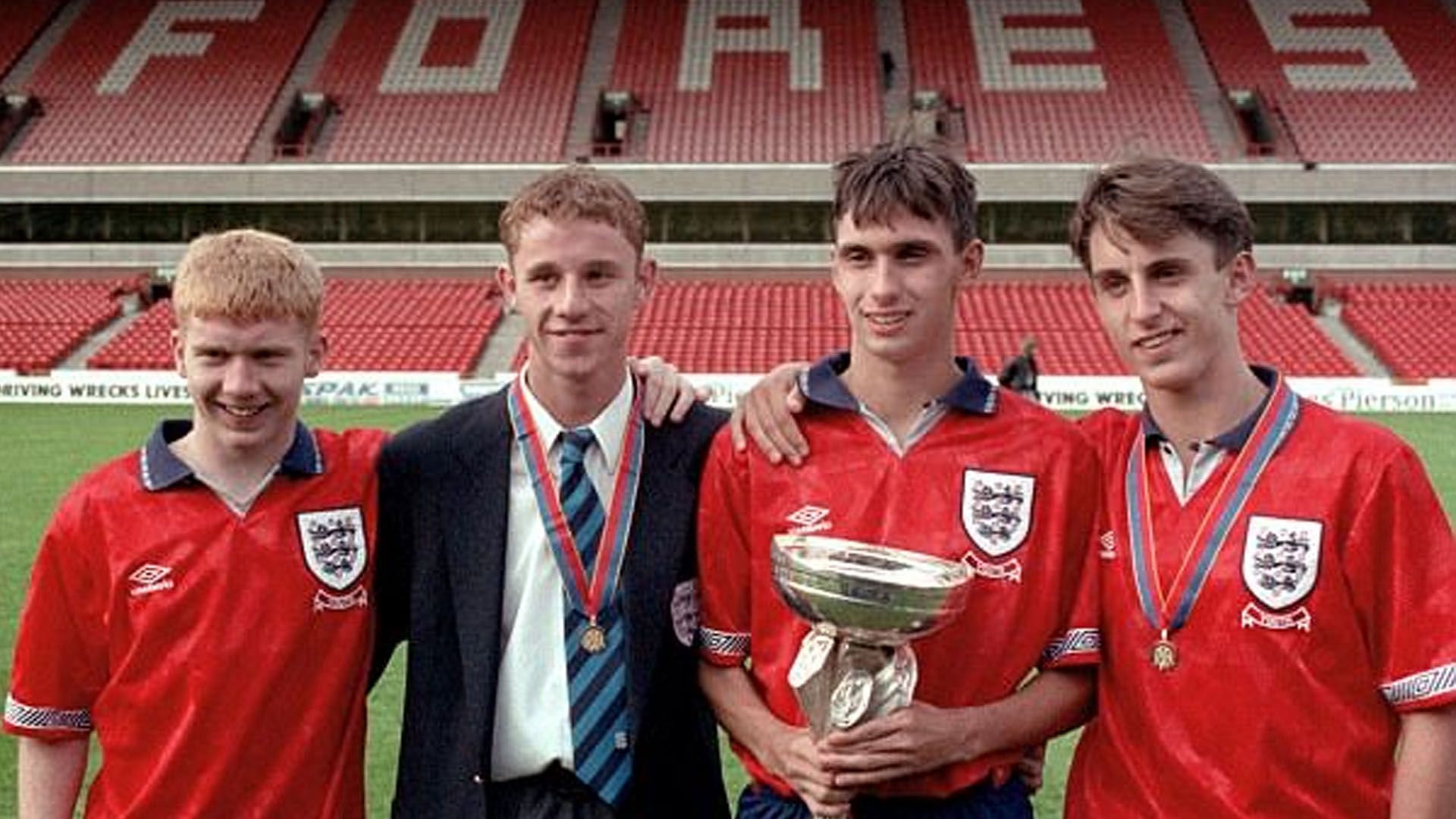
From winning trophies with England and Manchester United to a career-ending injury: The story of a forgotten Class of '92 graduate Chris Casper
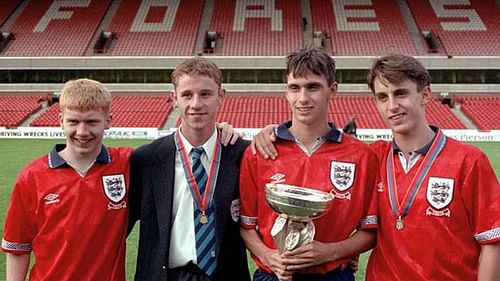
The Class of '92. A familiar term for any football fan that describes the raw talent that coursed through the veins of Manchester United’s youth set up in 1992. The revolutionary side that included familiar faces such as David Beckham, Paul Scholes, Ryan Giggs, Gary Neville, Robbie Savage and Chris Casper.
Who?
Well, although Robbie Savage didn’t really have the most illustrious career, he’s not the one we’re talking about here. Chris Casper is a U18 European Championship winner, FA Youth Cup winner and now sporting director at League Two side Salford City. But, he isn’t the first name off the tip of the tongue when mentioning the celebrated sides he was part of.
Casper was thrown into the deep end early into his Manchester United career and was forced to realize the harsh realities of professional football straight away. The 46-year-old recalled the memories of Manchester United Youth in an interview at his home.
"It was important you kept your head above the water first and foremost, because you’re playing with good players. Not just in the first team, but the youth team as well. Everyone’s competing for a job," Casper said.
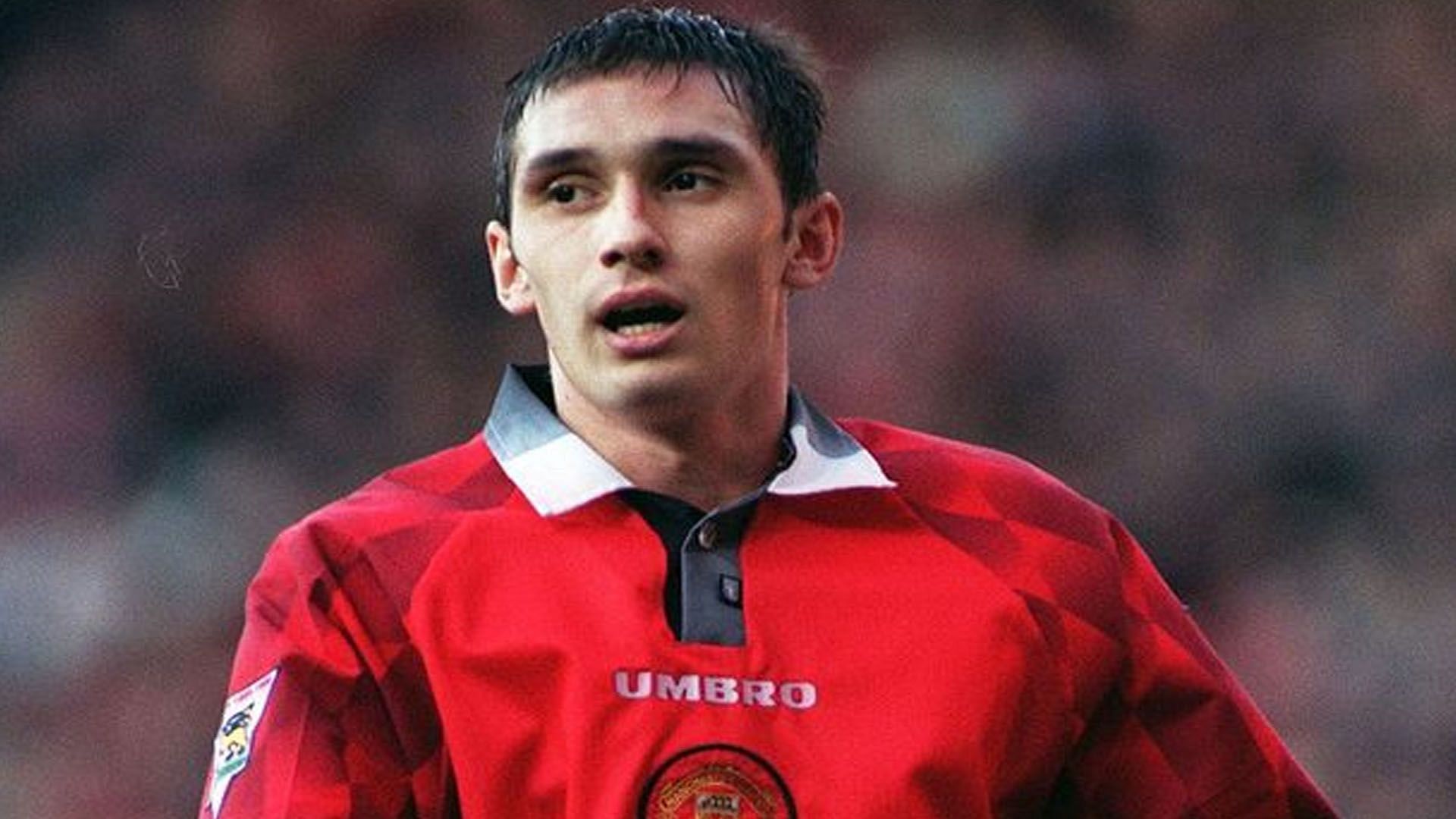
He spoke of the competitive environment at Manchester United right through the gate when he joined the club in 1991.
"I think it was the second or third day we had a round-robin tournament with all the players involved. By that, I mean all the players. I was playing with Bryan Robson and Mark Hughes, all my heroes growing up and you’re expected to perform and rightly so.”
Although the Youth Cup was the "last thing on his mind," there came a time when Casper had to shift his focus toward the competition. Chris was part of the FA Youth Cup-winning team in 1992 when Manchester United went on to beat Crystal Palace 6-3 in the final. He recalled United's memorable run in the tournament.
“Once we got past the third or fourth round against Man City, we started to think we could win it and you could see on the training ground before every Youth Cup game the intensity and quality lifted.”
The young no-nonsense centre-half went on to mention how the crowds that followed the young squad were a major reason for the club's success.
“We played Tottenham in the semi-finals, who were arguably the best team in the tournament because Darren Caskey was a first-team regular, Sol Campbell was a first-team regular. So, they had some experienced players.
“Our main first-team regular was Ryan Giggs and Ryan came to play for us when we beat Tottenham 3-0 at home at Old Trafford in front of 10,000 people and then there was four or five thousand at White Hart Lane and we won the game 2-1.
“So we’d always experienced decent crowds for our age group, but then to play in front of 35,000 at Old Trafford, it really gives you that boost as a young player, especially in a final,” Casper said.
However, the FA Youth Cup, as impressive as it was, wasn’t the most admirable accolade Casper achieved before the tender age of 20. Just a year on from the impressive success that young Manchester United squad had, three from the starting XI in the final went on to win the U18 European Championships for England in 1993.
The vice-captain was none other than Casper himself.
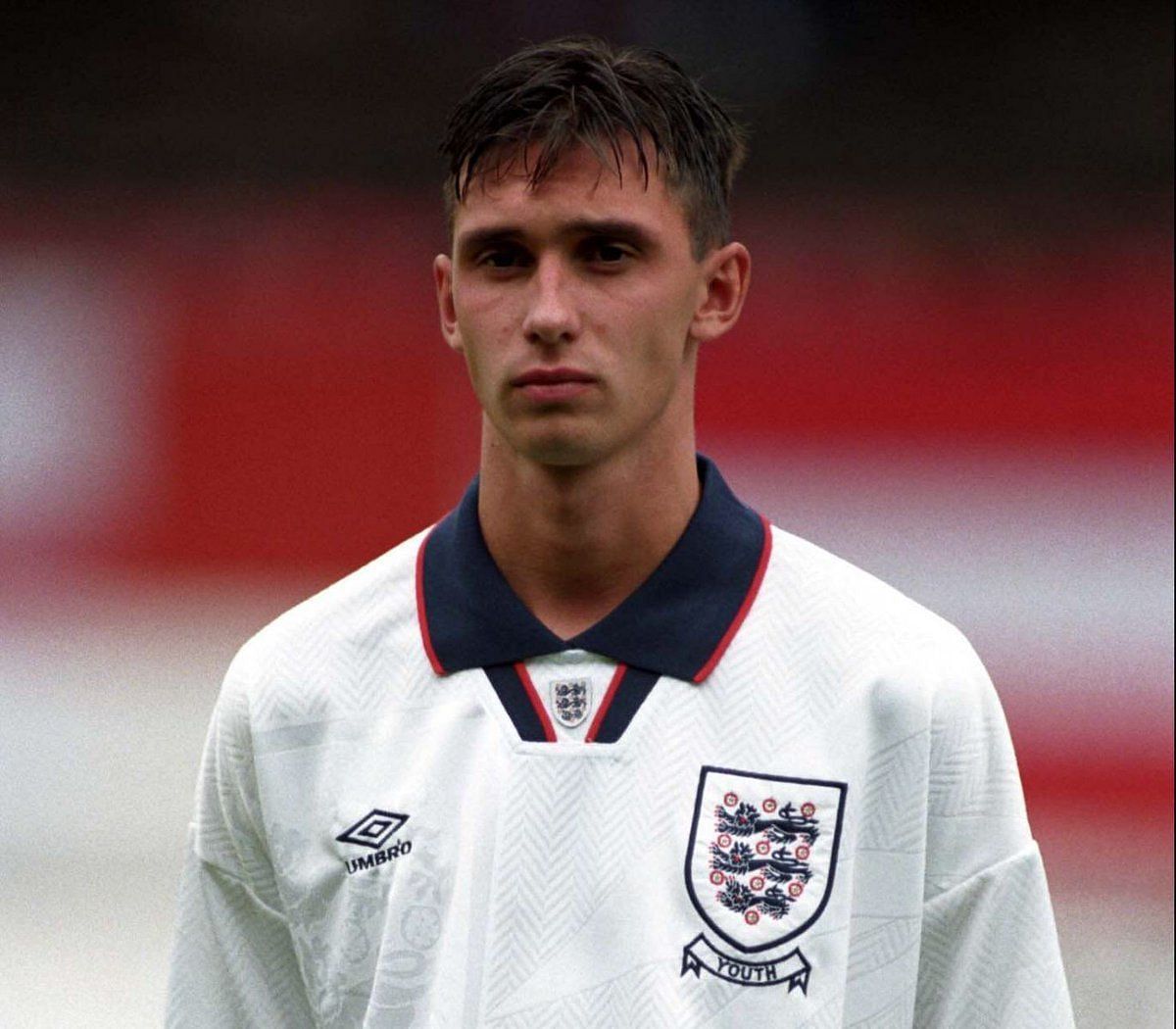
"Leading up to the tournament, I was captain of England until Darren Caskey came down from the U19s and became the captain for us in the tournament, which then put me as vice, but I didn’t mind," Casper said.
The grueling schedule for the tournament meant that the Young Lions played four games in seven days. Before the tournament, Leeds United and Manchester United managers Sir Alex Ferguson and Howard Wilkinson set rivalries aside to try and protect their young talents.
“The managers got together and said, 'Look, these lads can’t go together on that because they need to rest. There’s no way they can carry on, they’ve had a full season.'
“Then we had two weeks at a place called Lilleshall, which was the national football center, and the first week was training for the games.
“Then we played France on Sunday, beat them 2-0 at Stoke; played Holland on Tuesday at Walsall, beat them 4-1; played Spain on Thursday at Walsall again and beat them 5-1 and then beat Turkey (in the final) on Sunday,” Casper said.
The final was a hard-earned victory for England, only winning it narrowly courtesy of a late captain Caskey penalty. The game was held back for 45 minutes after high demand from fans meant another stand had to be opened.
"We kind of ignited the interest throughout the week. Spain were a top team, Holland, France, they all really were.
“So we ignited a bit of imagination, obviously playing Turkey in the final with the Turkish community around the area, there were thousands of Turkish fans as well.
“They only opened one stand because they didn’t expect the level of interest,” Casper recalled.
Although the delay may have been a positive for some players, giving them the opportunity to compose themselves and calm their nerves ahead of the biggest game of their lives. It was quite possibly the worst thing that could’ve happened to Casper at the time.
“In the game against Spain on Tuesday, I actually booted Gary Neville while clearing the ball in the last couple of minutes and I thought I broke my toe," Casper said.
“It might have been broken, but it was in the days where you just got on with it, I didn’t get an X-ray or anything like that.
“But before the game, the only way I could get through it was to get an injection in it and then have an injection at half-time.
“So before the warm-up, this injection gets stuck in my toe, which was painful enough as it allowed me to warm up and do things right.
“Then ten minutes before the warm-up, it was announced that the game was going to get pulled back by 45 minutes, in which time the injection started to wear off. So, the first half was painful and I had to wait until half-time before I could get another injection in my toe.
“It’s things like that you don’t forget,” Casper added.
This type of warrior, get on with it spirit is exactly what Sean Dyche's Burnley are all about these days; and it’s exactly what drove Burnley-born Casper to childhood greatness.
Casper recalled growing up in the area and watching The Clarets. “It was kind of embedded in the family culture, really, that Saturday was football day and if you didn’t watch Burnley's first team, you’d watch the reserves up at Turf Moor or you’d watch the youth team at Gawthorpe as it was in those days.
“So it was always a part of growing up really. I used to play football with my friends and stuff like that.
“My dad was obviously a big reason for me to start playing, there was never any pressure to become a footballer, but it’s what I wanted to do.
“He wouldn’t coach me too much, but I could tell whenever he watched there was always something that bugged him, which then sent the message to me to improve.”
Although work ethic and determination is what ultimately drove Casper to excel in his youth career, in the end it was crushed… along with his femur at the age of 24.
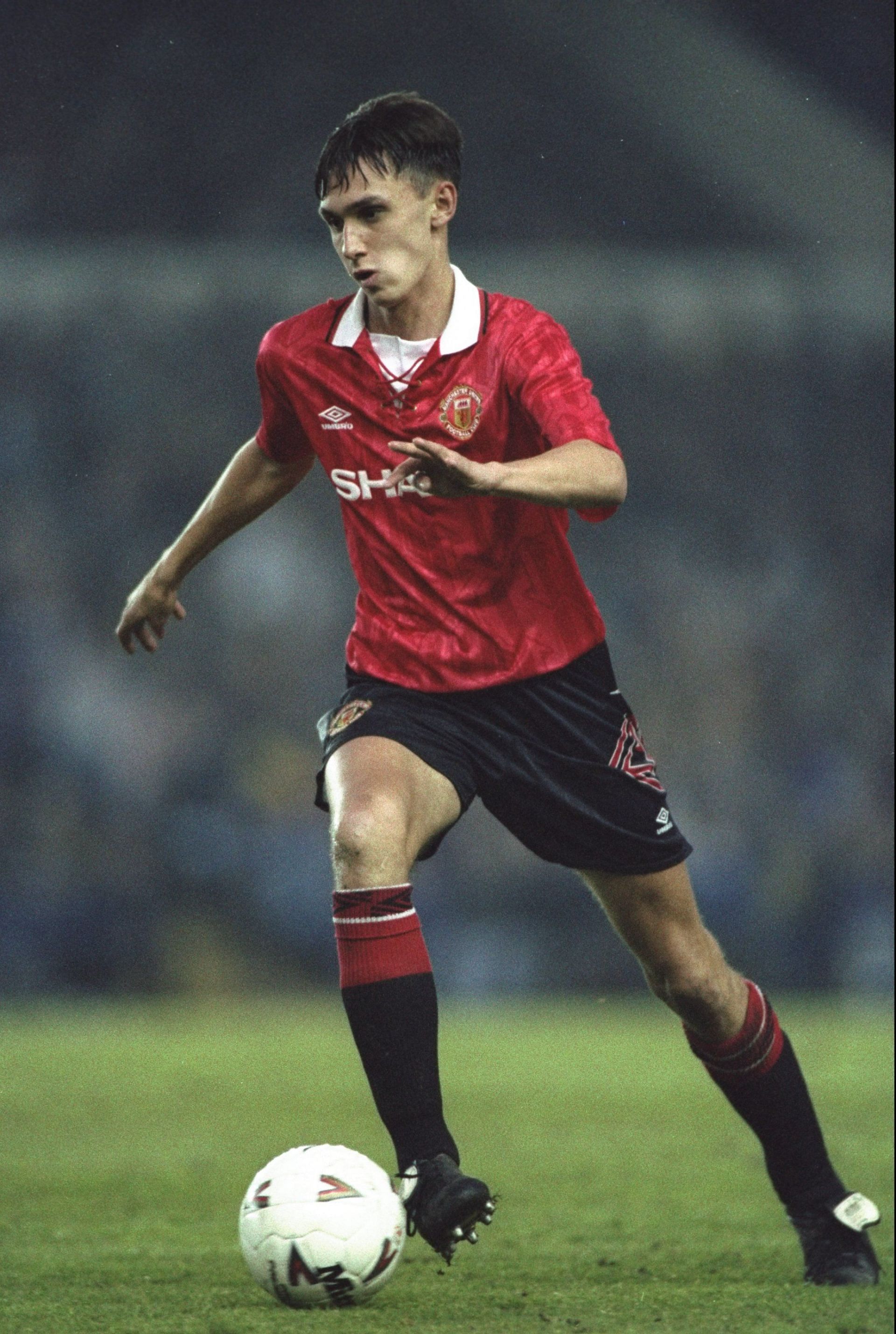
Life after Manchester United
After his time at Manchester United, he landed himself a deal with Championship club Reading in 1998.
On a chilly Boxing Day clash in 1999, the Royals faced off against Cardiff City. It would also be the last game of Casper's professional career.
“The ball got played in and I started to move forward to anticipate the ball getting cleared and then Richard Carpenter pushed the ball through someone’s legs and the ball was rolling onto me."
“I knew I had to make the tackle otherwise they would’ve been through on goal so I slid in to block the ball and he took it upon himself to hit me with a cheap shot.
“He two-footed me over the top of the ball and badly broke my leg.
“I failed to recover from it really, my ankle was badly damaged and my leg was snapped in half and my knee was damaged as well,” Casper recalled of the horror injury that ended his career.
The game was somewhat of a derby, with the clubs being close enough to each other and fans using more alcohol as a cure to their Christmas Day hangover. The atmosphere and occasion was certainly a catalyst for what was to come and made the game more tense than it should have been for a mid-table clash.
“It was a Sunday. A one o’clock kick off, we wouldn’t normally kick off at one o’clock on a Sunday.
“I remember the game," Casper said. "I wouldn’t say it was a local derby, but the clubs aren’t that far away. There were about 15,000 fans there, and at the old Ninian Park, it was bouncing that day.”
As soon as the tackle made contact with Chris’ leg he knew the extent of the injury through the pain he was experiencing, but also because of the visual placement of his ankle.
“I knew I broke my leg straight away because I saw it flop from one side to the other and then I felt it.
“I kind of knew on the stretcher coming off how bad the injury was and what had happened,” Casper said.
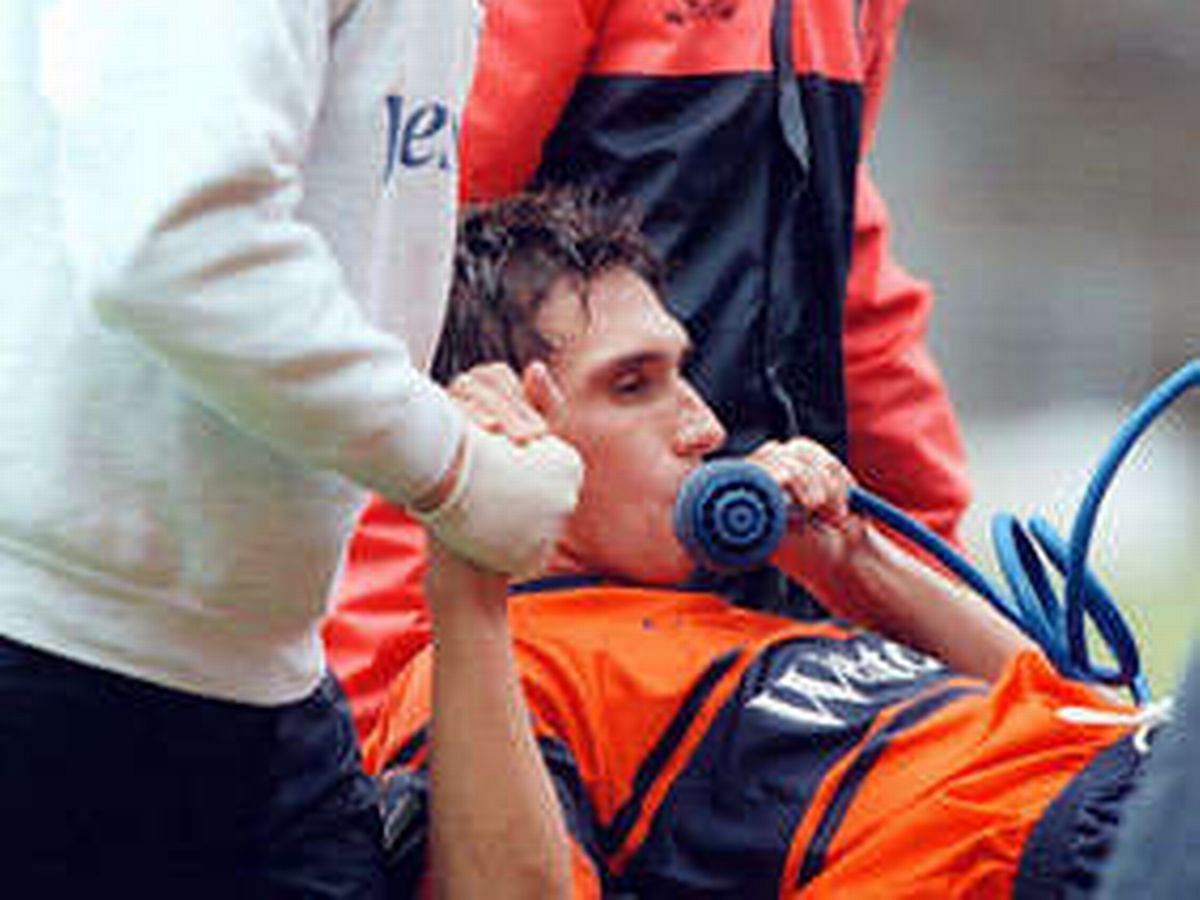
After taking a deep breath and using a tone of voice that would be used to fight a GBH case in court, Chris carried on his story using another Manchester United starlet as evidence towards his worries.
“I’d seen the same happen to a couple of my friends. Ben Thornley was probably one of the best players in that youth team and he had a horrendous knee injury while playing in a reserve game," Casper said.
“He got taken out by a guy named Nicky Marker — a scandalous tackle; well I say tackle, it wasn’t even a tackle, it was assault really.
“Ben was never the same player," Casper said. "He got back to playing at a certain level, but he would’ve played for United and England hundreds of times.
“He probably won’t thank me for saying it, but that would’ve been the case.”
Psychological treatment of injuries is something that is so vital to the modern game these days. It was what Chris struggled with the most, especially as he saw ex-teammates go through similar occurrences and saw first-hand how an injury to this extent could really hinder a career.
“It’s not just the physical side it’s the mental side as well. I knew coming off the field that it was going to be tough,” Casper said.
Early retirement to management
During his failed attempts to regain the starting place with the first team, Casper contacted the sporting director at Bath University, Jed Roddy, to ask if he could use the sporting facilities there to undertake rehab.
Roddy then offered him a chance to take part in some coaching whilst he was recovering from his injury, which Chris took upon himself to accept after being neglected during his recovery by Reading.
“One day on a Friday, I didn’t feel part of it (the club) and I knew it was it. There was no point carrying on.
“I got speaking to Jed and he offered me to do some coaching with him and I got to a stage where my injury wasn’t getting any better and I was feeling down.
“I did my old prelim badge at United and I enjoyed my coaching. Jed asked me to do some coaching with the B team and then the A team and then I worked up to Team Bath alongside Paul Tisdale,” Casper recalled.
Whilst coaching Team Bath, the young, retired centre-back managed to drag his university side into the first round of the FA Cup in 2002-03, becoming the first team to do so since Oxford made a name for themselves in 1880.
After a successful run in the FA Cup, Chris couldn’t emulate his youth career and Team Bath were knocked out by Mansfield after a 4-2 loss.
“We won about six games and the game where Mansfield beat us was just an incredible occasion," Casper said.
“When the draw came out that we had Mansfield, we were surprised to find out we were playing at the university," he added.
“There was five thousand at Bath University. The pitch was on top of a hill and it was live on Sky. It was unbelievable!
“It was a great time for us and a great time for the lads; they deserved everything they got,” Casper said.
However, this would be his last success as a coach or manager after fielding an illegible player with Bury, poor runs with Bradford City and a relegation-riddled spell at Grimsby Town quickly halted his managerial career.
Instead, Casper has taken a more direct approach to try and influence football, joining the Premier League in 2010.
“Later in my career, I worked with Jed again in the Premier League. We were kind of the main architects of the new performance plan,” Casper said.
After his role in the Premier League expired, he almost became a part of the Class of '92 again as he accepted a role as sporting director at Salford City in 2017, reuniting with club owners Gary Neville, Paul Scholes and Nicky Butt.
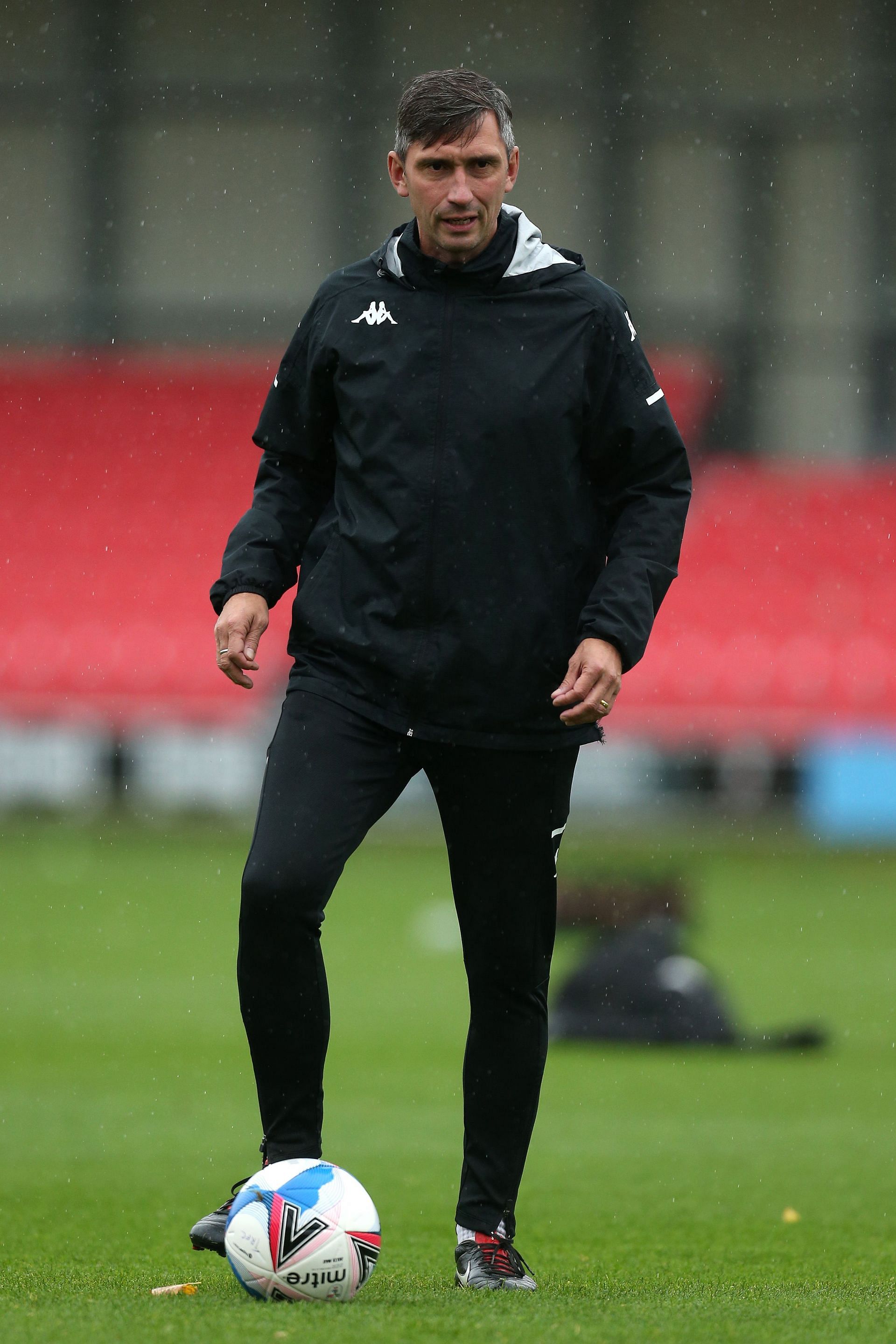
“It’s great to be back involved with the lads, albeit it’s mainly Gary, but obviously the others take a massive interest and have good communication.
“But at the end of the day I’ve got a job to do and I’ve got to be professional and the friendships or whatever have to be put to one side to make sure there’s no compromise," Casper said of his role at Salford City.
“Obviously we know each other, we know what the expectations are and what we’re trying to achieve. They’re all great lads, they've all had successful playing careers; so they understand the game. For me not to listen to their advice would be silly," he added.
It does help to have Gary Neville, Paul Scholes and Ryan Giggs on your side if you're looking for a player. Casper enjoys a good working relationship with his old teammates and also gets to utilize their experience.
After seeing his friends stride onto riches whilst he was stuck in the Championship, receiving career-ending injuries and coaching alcoholic university students, things have come full circle for Casper. At the end of their careers, Chris and his illustrous Class of '92 teammates find themselves in the same place.
Although Beckham, Scholes, Giggs, and Neville are household names in the world of football, they now have more in common with Casper than just successful youth careers at Manchester United — playing Christmas charity football games for the Salford City foundation.